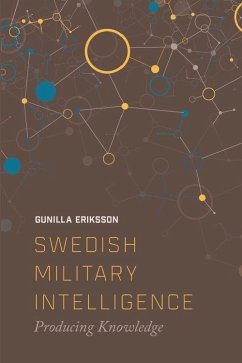'This book is a remarkable achievement in a field with a chronic shortage of contemporary in-depth empirical studies. Her investigation of the knowledge production process within the walls of an intelligence machinery offers unique insights, far beyond the ordinary handbook literature, personal recollections and historical accounts.' Wilhelm Agrell, Lund University Examining how styles of thought can influence intelligence analysis and thwart objectivity Intelligence produces knowledge on security issues such as conflicts, wars and complex political processes in order for policy makers to generate informed decisions. Intelligence knowledge production is often held as objective, value neutral, and with the intention of 'speaking truth onto power', but this study holds that such a perspective requires significant revision. Gunilla Eriksson argues for the existence of an implicit interpretive framework that continuously influences knowledge production, thereby making it dependent on one accepted and specific perspective contrary to the intentional objectivity. This inherited frame of interpretation, as well as the socialised norm of staying within the existing accepted frameworks of behaviour, ends up fostering conformity to the established 'logic of appropriateness'. Utilising unpublished primary intelligence material and adopting a critical policy analysis approach, Erikkson offers an original, critical view of the conditions surrounding the production of intelligence knowledge. Gunilla Eriksson is a post-doctoral researcher in the Department of War Studies at the Swedish National Defense University. Prior to her academic career, she was an intelligence analyst at the Swedish Military Intelligence and Security Service. Cover image: © Omelchenko/shutterstock.com Cover design: [EUP logo] edinburghuniversitypress.com ISBN 978-1-4744-1344-2 Barcode








